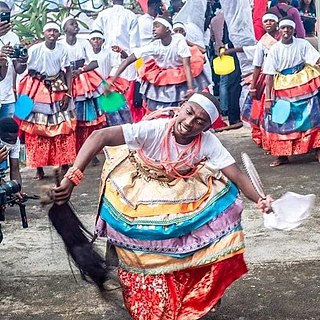
The Itsekiri are one of the Yoruboid subgroup of Nigeria's Niger Delta area, They speak a Yoruboid language and can be found in Delta State. The Itsekiris presently number 2.7 million people and live mainly in the Warri South, Warri North and Warri South West local government districts of Delta State on the Atlantic coast of Nigeria. Significant communities of Itsekiris can be found in parts of Edo and Ondo states and in various other Nigerian cities including Lagos, Benin City, Port Harcourt and Abuja. Many people of Itsekiri descent also reside in the United Kingdom, the United States and Canada. The Itsekiris are closely related to the Yoruba of South Western Nigeria and also close to the Okpe people and Edo peoples. The Itsekiris traditionally refer to their land as the Kingdom of Warri or 'Iwere' as its proper name – which is geographically contiguous to the area covered by the three Warri local government districts. The area is a key centre of Nigeria's crude oil and natural gas production and petroleum refining and the main town Warri forms the industrial and commercial nucleus of the Delta State region.

Chief Festus Okotie-Eboh was a Nigerian politician who was the finance minister of Nigeria from 1957 to 1966 during the administration of Sir Abubakar Tafawa Balewa.

Nana Olomu (1852–1916) was an Itsekiri chief and palm oil merchant from the Niger Delta region of southern Nigeria. He was the fourth Itsekiri chief to hold the position of Governor of Benin River.
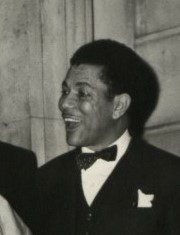
Chief Arthur Edward Prest was an Itsekiri politician of biracial heritage from the Warri division of southern Nigeria.
The Itsekiri language is a major branch of the Yoruboid group of languages, which as a group, is a key member of the Volta–Niger sub-family of the Niger–Congo family of African languages. Itsekiri is spoken by nearly 900,000 people in Nigeria as a first language and by many others as an additional language notably in the Niger Delta and in parts of Edo and Ondo states of Nigeria. The other key members of the Yoruboid group are Yoruba and Igala along with the various Yoruba dialects spoken in Benin and Togo.
The Urhobos are people located in southern Nigeria, near the northwestern Niger Delta.

The Kingdom of Warri, Warri Kingdom or Iwere Kingdom, was established in 1480, was part of the Nigerian traditional states its ancestral capital is based in Ode-Itsekiri, Warri South LGA, Delta State, Nigeria with a palace erected in 1950s in the heart of the city of Warri, Warri South LGA, Delta State, Nigeria.

Erejuwa II was a Nigerian traditional title holder and paramount leader of the Itsekiri who was Olu of Warri from 1951 to 1964 and from 1966 to 1986. He was the 18th Olu of Warri Kingdom with the title Ogiame Erejuwa II. He succeeded his father Ginuwa II as Olu. Ginuwa II was a great grandson of Olu Akengbuwa the last Olu who died in 1848, he was crowned in 1936 after an interregnum that lasted 88 years when Warri's political leadership was dominated by merchant princes.

Olu Ginuwa was an Itsekiri king who was the first Olu of Warri. He was the eldest son of Oba Olua, the 14th Oba of Benin (1473–1480A.D.) and Heir Apparent to the throne of the Great Benin Kingdom. He migrated from Benin Kingdom and was crowned the first Olu of Warri. He reigned for a period of 30 years. He reigned from 1480 to 1510. He was succeeded by his son, Olu Ijijen (Ogbowuru). Another of his sons, Olu Irame took over as king after Olu Ijijen joined his ancestors.
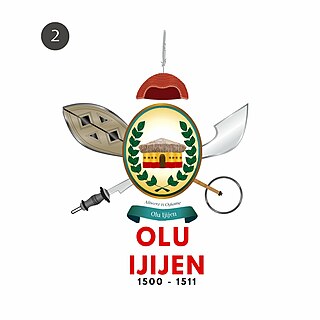
Olu Ijijen (Ogbowuru) was born to Olu Ginuwa. He is the 2nd Olu of Warri. He succeeded his father Ogiame Olu Ginuwa. He was the first King to reach Ode-Itsekiri as his father settled down at Ijala community which is the burial place for all future Olu's. He reigned from 1510 to 1538. He was succeeded by his brother Olu Irame.
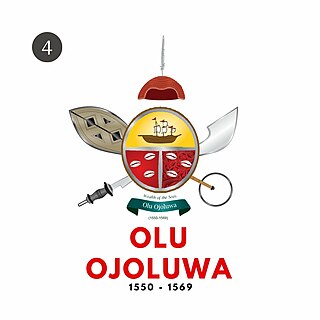
Olu Ojoluwa was an Itsekiri traditional ruler. He succeeded his father Ogiame, Olu Irame after his demise. He was crowned Ogiame Ojoluwa, the 4th Olu of Warri Kingdom at Ode-Itsekiri, the ancestral home of the Itsekiri. Olu Ojoluwa reigned for about nineteen years from about 1550 to 1569. During his reign, he commenced the process of integration of Ekpen's (Ekpenede) descendants of Okere with the local population in the kingdom.
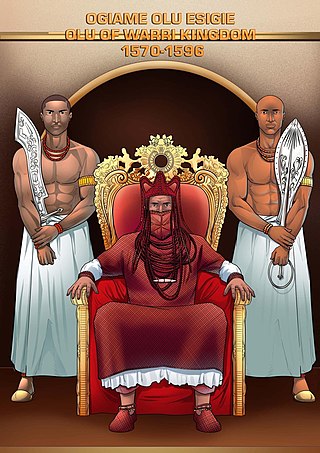
Olu Esigie was an Itsekiri traditional ruler. He succeeded his father Ogiame, Olu Ojoluwa after his demise. He was crowned Ogiame Esigie, the 5th Olu of Warri Kingdom at Ode-Itsekiri, the ancestral home of the Itsekiri. He ascended the throne of his father in 1570 and reigned until 1597, when he passed on. He was succeeded by his son, Olu Atorongboye.
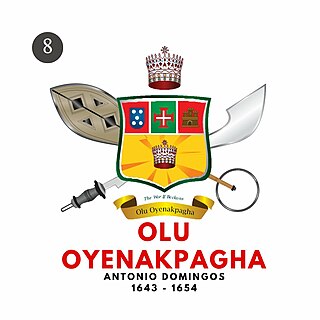
Olu Oyenakpagha was the 8th Olu of Warri who ruled over the Itsekiri people. He was named Omonighenren which translates to Prince with the golden skin. On ascension to the throne as Ogiame, Olu of Warri Kingdom, he was named Obanighenren which translates to King with the golden skin. His other name was Don Antonio Domingos. He was the son to Olu Atuwatse I and succeeded his father as the 8th Olu of Warri. He wrote a letter to Pope Clement X in 1652 which was delivered to the Pope successfully. He was educated at home and at an institute in Angola. Like his father, he married a Portuguese noblewoman. His son Olu Omoluyiri succeeded him.

Olu Omagboye was the 12th Olu of Warri who ruled over the Kingdom of Warri. He succeeded his father, Olu Akenjoye as the 12th Olu of Warri. He took the title, Ogiame Omagboye. His son Olu Akengboye succeeded him.

Olu Akengboye was the 13th Olu of Warri who ruled over the Kingdom of Warri. He succeeded his father, Olu Omagboye (Miguel) as the 13th Olu of Warri. He took the title, Ogiame Akengboye. His Portuguese name was Agostinho Sabastiao Octobia. His son Olu Atogbuwa succeeded him around 1734.

Olu Akengbuwa was the 16th Olu of Warri who ruled over the Kingdom of Warri. He succeeded his father Olu Erejuwa I as the 16th Olu of Warri. He took the title, Ogiame Akengbuwa. He was also called Eyeolusan Joao. When he went to be with his fathers, there was a period of crisis following the death to the potential successors which was followed by a period of political Interregnum. His son Prince Oritsemone left Ode-Itsekiri during the period of the crisis to form Usele Community.

Olu Ginuwa II was a Nigerian traditional title holder and paramount leader of the Itsekiri who was Olu of Warri from 1936 to 1949. He was the 17th Olu of Warri Kingdom with the title Ogiame Ginuwa II. He was born Emiko Ikengbuwa. He succeeded his grandfather Olu Akengbuwa as Olu of Warri after an interregnum that lasted 88 years when Warri's political leadership was dominated by merchant princes.
Ode-Itsekiri is a community in Warri South Local Government Area of Delta State, Nigeria. It is also called Itsekiri-Olu and Big Warri. It is the capital of the Itsekiri people and one of the first autonomous communities before the crowning of the Olu Ginuwa. It existed long before 1480, with exact data not known. The Olu's Palace in Ode-Itsekiri has always been used to crown the Olu of Warri Kingdom, while the Kings are buried at Ijala-Ikenren Community.
Okere-Urhobo is the name of one of the two Urhobo kingdoms in Warri South Local Government, Delta State, Nigeria, the other being Agbassa.
Sir Arthur Frederick Clarence Webber was a British lawyer and judge who served in British Guiana, Nigeria and Sierra Leone, where he was Chief Justice.















